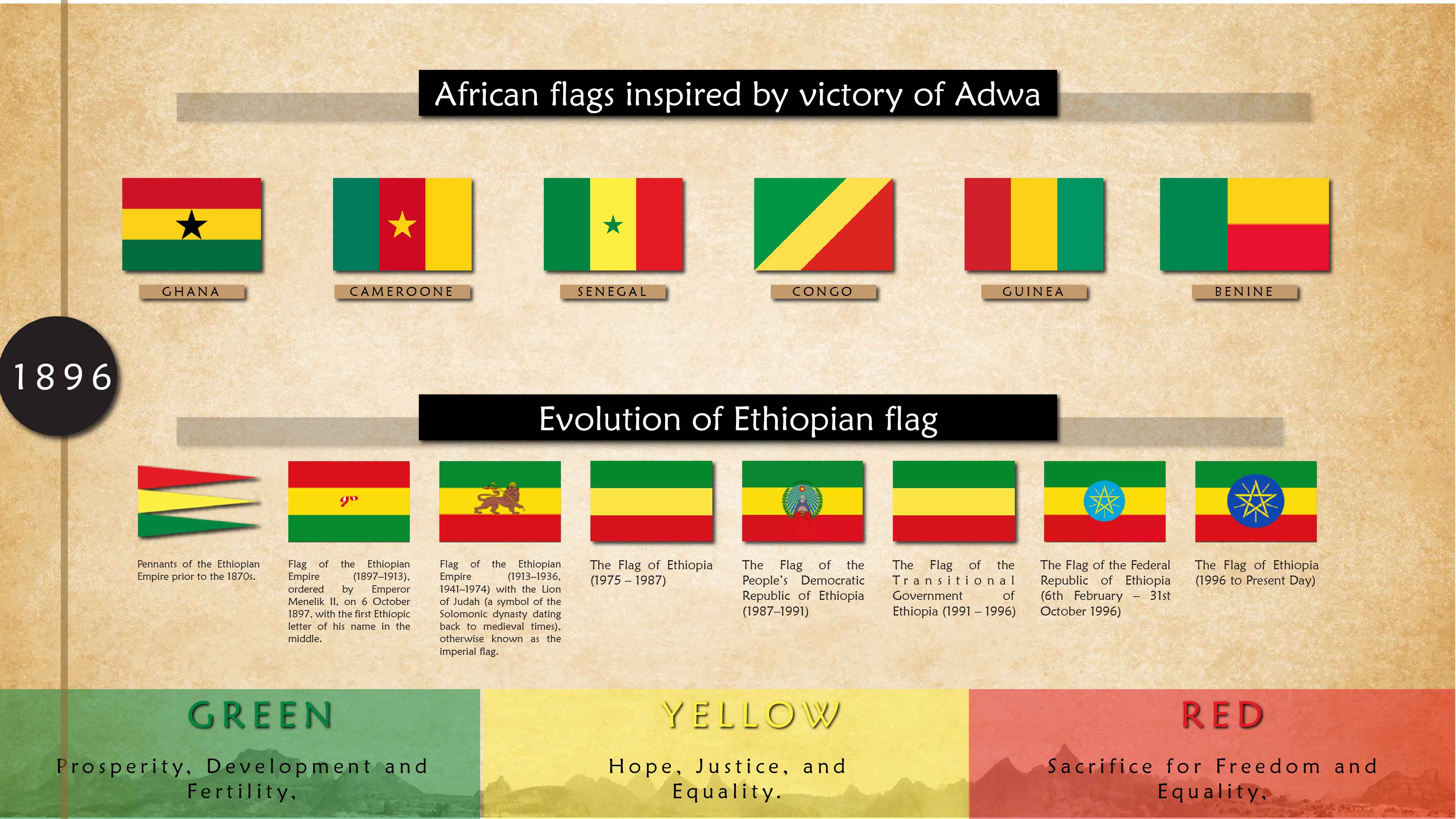
The Global Significance of the victory of Adwa
The Adwa Battle not only brought about physical changes, but also psychological benefits. Ethiopians enjoyed a sense of independence, superiority, and pride in their country that other Africans mired in colonialism had lost. The post-Adwa spirit of Ethiopia, passed down through the generations, gave Ethiopians courage and a distinctive worldview. Africans and Black Americans constrained by racial discrimination and apartheid in any form found inspiration and hope in the image of independent Ethiopia, the country that successfully resisted the Europeans. For people around the world seeking freedom from colonial servitude, Ethiopia served as a role model of independence and dignity.
The Adwa victory resonated in many parts of the world, including the Caribbean, the USA, and Africa. Ethiopia became a topic of interest for Black luminaries around the world such as Marcus Garvey, who founded the "Back to Africa" Movement in 1914 in Jamaica and Harlem, New York City, United States. Many referred to the establishment of Black power and an Adwa-style African liberation war in their speeches. Black people in the United States and the Caribbean rejoiced over the victory because it signaled the impending liberation of their people (Abraham, 2007)..
Conversely, the European press generally avoided reporting on the Adwa battle in colonial Africa. The Adwa battle sent two messages: one to European colonialists and the other to Africans on the continent and in the diaspora. It signaled to European colonialists that Africans could effectively challenge their power. It conveyed a message of hope to Africans on the continent and in the diaspora that subjugation, whether in the form of colonialism, slavery, or other forms of social, political, and economic exploitation, can be resisted through effective organization, consensus-building leadership, and concerted effort.
The Ethiopian victory at Adwa destroyed the theoretical justification for colonial rule and the practice of racism in all of its social and institutional manifestations in the economic, political, and cultural life of Africa that the colonial policy had used to justify the allegedly general inferiority of Africans. The myth of European superiority and invincibility was dispelled by the Adwa victory. The victory of an African state over a major European power alarmed Europeans. There is proof that Adwa was well received in colonial Africa, particularly in Liberia. Aside from that, the first anti-colonial movement was inspired by its memory. This was strongly felt, especially after Italy's second invasion of Ethiopia in 1935. Additionally, it encouraged Kwame Nkrumah to create the OAU (Organization of African Unity), with Addis Ababa as Africa’s diplomatic capital.